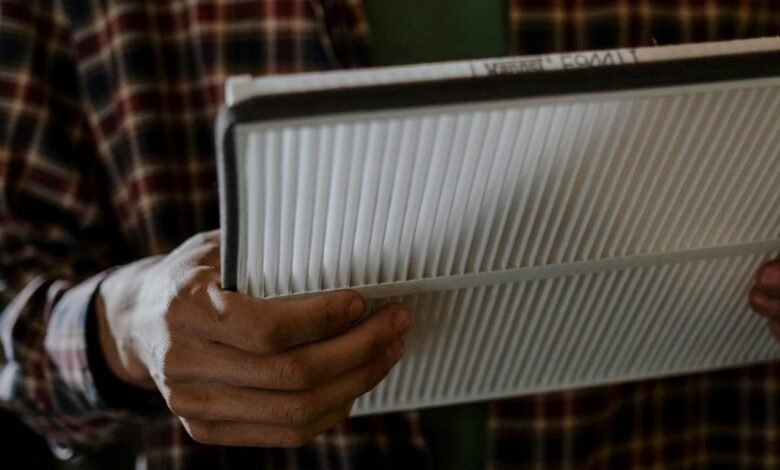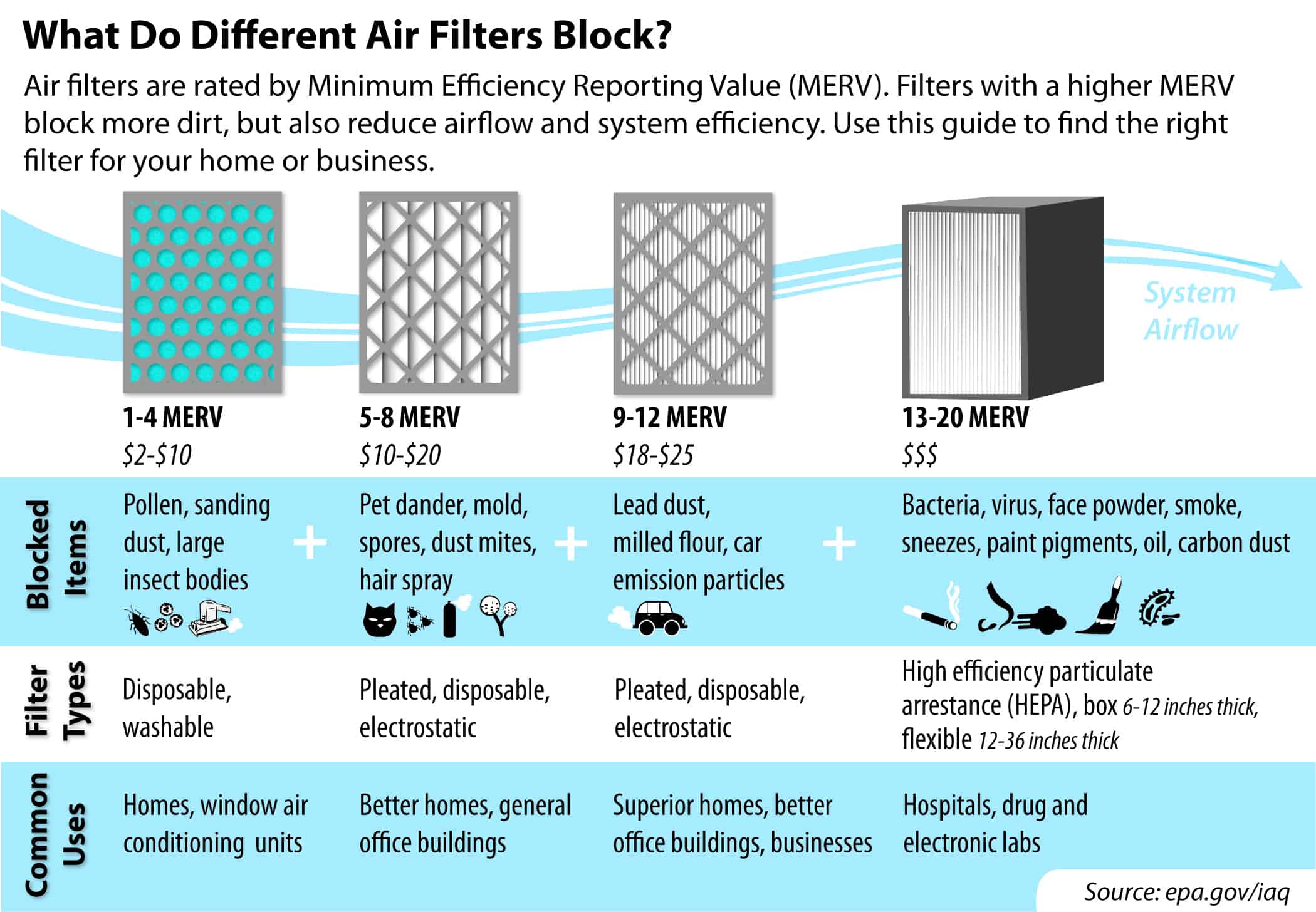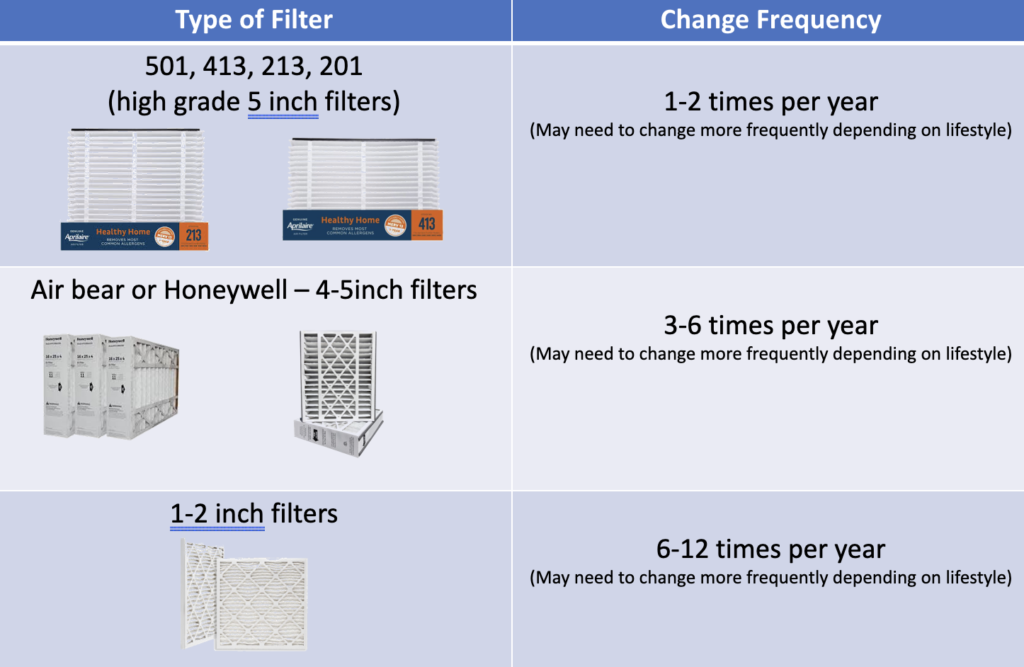How Often to Change Air Filter: Maximize Freshness!

To maintain optimal air quality and ensure efficient HVAC system performance, it is recommended to change your air filter every 3 months. Neglecting to replace your air filter regularly can lead to a buildup of dust, pollen, and other airborne particles, reducing indoor air quality and potentially causing respiratory issues.
Regular filter changes not only improve air circulation but also extend the lifespan of your HVAC system. By adhering to this simple maintenance task, you can enjoy cleaner air and enhance the overall efficiency of your home’s heating and cooling system.

Credit: kyelectric.coop
The Importance Of Fresh Air
Ensuring fresh air in your home is crucial for your well-being. Remember to change your air filter every 3 months to maintain optimal indoor air quality. Regular filter changes help reduce allergens and improve overall air circulation for a healthier living environment.
Fresh air plays a crucial role in maintaining our health and overall well-being. It is essential to breathe in clean air to stay healthy and improve our quality of life.
Health Benefits
Fresh air reduces the risk of respiratory issues and boosts the immune system. Regularly changing air filters ensures clean air and promotes better health.
Enhanced Comfort
Breathing in fresh air leads to improved mood and mental clarity. It also enhances sleep quality and overall comfort levels in the home.

Credit: mechanicalheating.com
Air Filters Explained
One of the most important components of your HVAC system is the air filter. It’s responsible for keeping the air in your home clean and healthy to breathe. But how often should you change it? Let’s take a closer look at air filters and how they work.
Types Of Air Filters
There are several types of air filters available, each with its own unique set of advantages and disadvantages. Here are some of the most common types:
| Type | Advantages | Disadvantages |
|---|---|---|
| Fiberglass | Cheap | Low filtration efficiency |
| Pleated | Higher filtration efficiency than fiberglass | More expensive than fiberglass |
| Electrostatic | Traps small particles effectively | May produce ozone |
How They Work
Air filters work by trapping particles as air flows through them. The tighter the filter, the more effective it is at trapping particles. As the filter traps more and more particles, it becomes clogged and less effective. This is why it’s important to change your air filter regularly.
The recommended frequency for changing your air filter varies depending on factors such as the type of filter you have, the number of people in your home, and whether or not you have pets. How Often to Change Air Filter? Generally, it’s a good idea to check your filter every month and change it every 3 months.
Now that you know more about air filters and how they work, you can make an informed decision about how often to change yours. Remember, changing your air filter regularly is an important part of maintaining a healthy and comfortable home.
Signs Your Air Filter Needs Changing
If you notice reduced airflow or increased dust in your home, it may be time to change your air filter. Generally, it is recommended to replace your air filter every 30-90 days, depending on usage and filter type. Regular filter changes help maintain air quality and HVAC system efficiency.
Decreased Air Flow
One of the signs that your air filter needs changing is a noticeable decrease in air flow. When your air filter becomes clogged with dirt, dust, and other particles, it restricts the airflow from your HVAC system. This can result in reduced air circulation throughout your home, making it harder for your system to effectively cool or heat the space. If you notice that the airflow from your vents is weaker than usual, it’s a clear indication that your air filter needs to be replaced.
Unusual Noises
Another telltale sign that your air filter needs changing is the presence of unusual noises coming from your HVAC system. When the air filter is dirty or clogged, it puts strain on the system, causing it to work harder to push air through the filter. This increased strain can lead to strange noises, such as rattling, whistling, or banging sounds. If you hear any of these noises coming from your HVAC system, it’s a good indication that your air filter needs immediate attention.
Visible Dirt And Dust
One of the easiest ways to determine if your air filter needs changing is by visually inspecting it. Over time, the filter collects dirt, dust, and other debris, which can be seen with a simple visual inspection. If you remove the air filter and notice a significant accumulation of dirt and dust particles, it’s a clear sign that your filter is no longer effective and needs to be replaced. Keep in mind that a dirty air filter not only affects the performance of your HVAC system but can also contribute to poor indoor air quality.
Optimal Frequency For Changing Air Filters
Regularly changing your air filters is crucial for maintaining optimal air quality and system efficiency. Depending on factors such as air quality, usage, and filter type, it is recommended to change your air filters every 30-90 days. Keeping up with this routine maintenance can improve indoor air quality and prolong the lifespan of your HVAC system.
General Recommendations
Air filters are an important component of any HVAC system, as they help to keep the air in your home clean and free of harmful particles. However, many homeowners are unsure of how often they should be changing their air filters. Generally, it is recommended that you change your air filter every 30 to 90 days, depending on a variety of factors.
Factors That Influence Frequency
There are several factors that can influence how often you should change your air filter. These include the number of people living in your home, the presence of pets, the level of air pollution in your area, and the type of filter you are using. If you have a large family or pets, you may need to change your air filter more frequently, as there will be more dust, dirt, and pet dander circulating in your home.
Similarly, if you live in an area with high levels of air pollution, you may need to change your air filter more frequently to ensure that your home’s air quality remains high. The type of filter you are using can also impact how often you need to change it. For example, if you are using a basic fiberglass filter, you may need to change it more frequently than if you are using a higher-end filter, such as a HEPA filter.
In conclusion, changing your air filter regularly is an important part of maintaining good indoor air quality. By following these general recommendations and taking into account the factors that influence frequency, you can ensure that your home’s air is clean and healthy for you and your family to breathe.
Step-by-step Guide To Changing Your Air Filter
When it comes to maintaining your HVAC system, changing the air filter is a simple yet crucial task. Regular air filter changes ensure that your system runs efficiently and your indoor air quality remains high. This step-by-step guide will walk you through the process, making it easy for you to keep your system in top condition.
Choosing The Right Filter
Before you begin, it’s important to choose the right air filter for your HVAC system. Consider factors such as the size, type, and MERV rating of the filter. Refer to your system’s manual to determine the appropriate specifications. Purchasing the correct filter ensures optimal performance and air quality.
Installation Process
Once you have the new filter, it’s time to begin the installation process. Turn off your HVAC system before opening the access panel to the air filter. Carefully remove the old filter and dispose of it properly. Insert the new filter according to the directional arrows on the frame, ensuring a snug fit. Finally, close the access panel and turn your system back on. You’ve successfully completed the air filter change!

Credit: www.homedit.com
Maximizing Air Filter Performance
Regular maintenance of your air filter is crucial to ensure optimal performance and improve the air quality in your home. By following a few simple tips and avoiding common mistakes, you can extend the lifespan of your air filter and maximize its efficiency.
Regular Maintenance Tips
Properly maintaining your air filter involves regular cleaning or replacement, depending on the type of filter you have. Here are some tips to help you keep your air filter in top condition:
- Check your air filter every 30 days to assess its condition.
- If you have a reusable filter, follow the manufacturer’s instructions for cleaning.
- For disposable filters, replace them as recommended by the manufacturer or every 90 days.
- If you have pets or allergies, consider changing your filter more frequently.
- Make sure to turn off your HVAC system before removing or replacing the air filter.
Avoiding Common Mistakes
Many homeowners unknowingly make mistakes that can reduce the effectiveness of their air filters. Here are some common mistakes to avoid:
- Using the wrong size filter: Always check the dimensions of your filter before purchasing a replacement.
- Not sealing the filter properly: Ensure the filter is securely in place to prevent air bypass.
- Ignoring the filter’s MERV rating: Choose a filter with a MERV rating appropriate for your needs.
- Neglecting regular maintenance: Regularly inspect and clean or replace your filter to maintain optimal performance.
- Forgetting to schedule reminders: Set reminders to check and replace your air filter on a regular basis.
By following these tips and avoiding common mistakes, you can maximize the performance of your air filter and enjoy cleaner, healthier air in your home. Remember, regular maintenance is key to ensuring the longevity and efficiency of your air filter.
The Impact Of Neglecting Air Filter Change
Reduced Air Quality
Failing to change the air filter regularly results in reduced air quality.
Dust and contaminants build up, circulating in your living space, affecting health.
Increased Energy Costs
An unchanged air filter leads to increased energy costs due to inefficient operation.
A clogged filter forces the system to work harder, consuming more energy.
Advanced Solutions For Fresh Indoor Air
For fresh indoor air, it’s important to change your air filter every 90 days, or more frequently if you have pets or allergies. This advanced solution ensures optimal air quality and reduces the risk of airborne pollutants in your home.
Regular filter changes promote a healthier living environment.
Smart Air Filters
Upgrade to advanced smart air filters for enhanced indoor air quality.
Whole House Air Purification Systems
Invest in whole house air purification systems for comprehensive air cleaning.
When it comes to advanced solutions for fresh indoor air, there are various options available to ensure optimal air quality in your home.
Regularly changing your air filter is crucial for maintaining clean indoor air.
Smart air filters offer advanced features like automatic filter replacement reminders.
Consider installing whole house air purification systems to effectively clean the air throughout your entire home.
These systems are designed to capture and eliminate a wide range of indoor air pollutants.
Frequently Asked Questions
How Often Should I Change My Air Filter?
You should change your air filter every 30 to 90 days, depending on factors like pets, allergies, and air quality. Regular replacement helps maintain air quality and HVAC system efficiency.
What Are The Signs That My Air Filter Needs Changing?
Look out for reduced airflow, increased energy bills, excessive dust in the home, and visible debris on the filter. These indicators suggest it’s time to replace your air filter.
Can A Dirty Air Filter Affect My Health?
Yes, a dirty air filter can lead to poor indoor air quality, triggering allergies and respiratory issues. Regular air filter changes can help create a healthier living environment for you and your family.
How Does A Clean Air Filter Benefit My Hvac System?
A clean air filter allows for better airflow, reducing strain on the HVAC system and promoting energy efficiency. It also helps prevent costly repairs and extends the lifespan of your system.
Conclusion
Regularly changing your air filter is crucial for maintaining indoor air quality and ensuring the efficient performance of your HVAC system. By following the manufacturer’s recommendations and considering factors like air quality and usage, you can keep your home environment healthy and your HVAC system running smoothly.
Remember, a simple air filter change can make a big difference.





